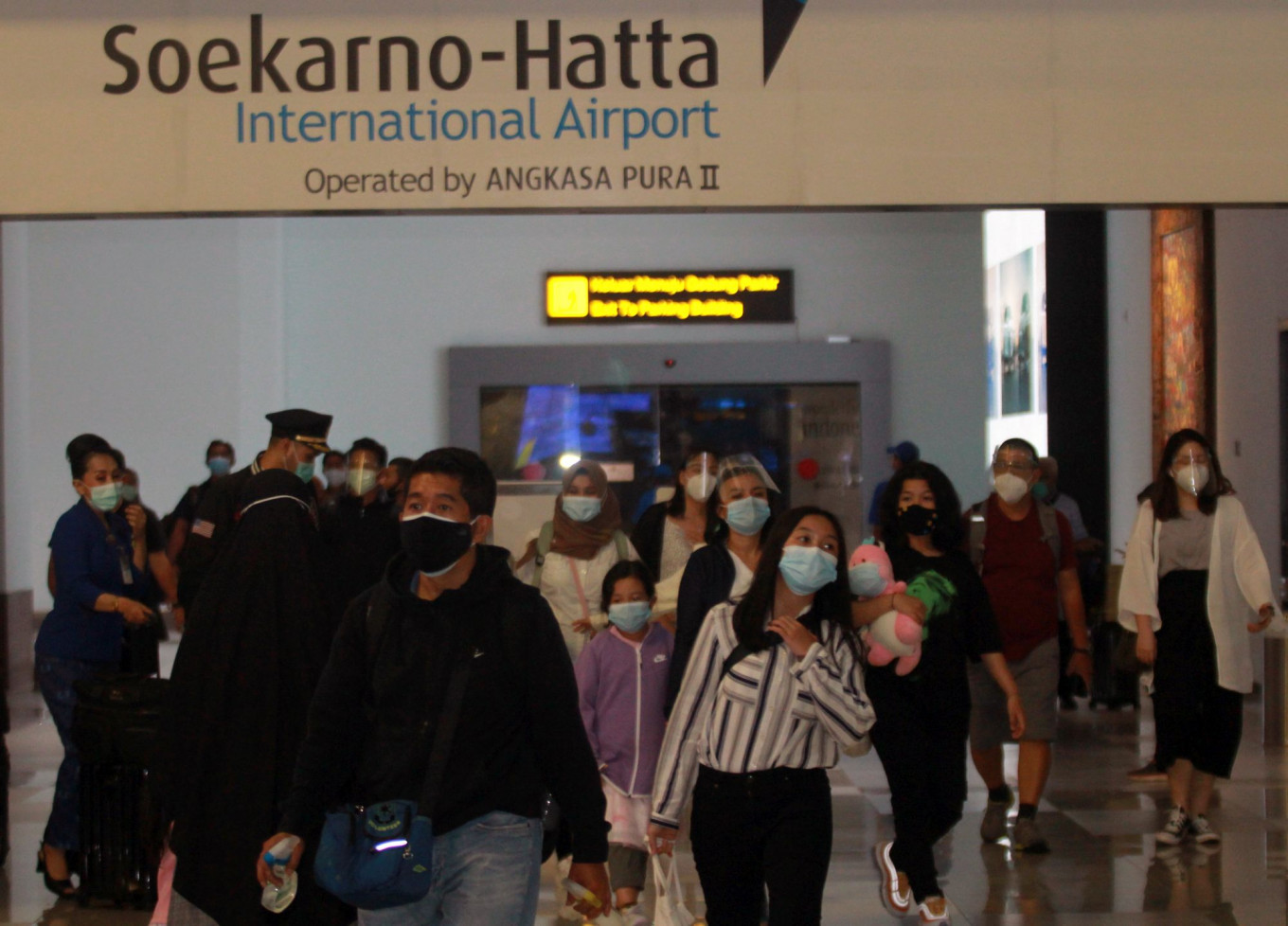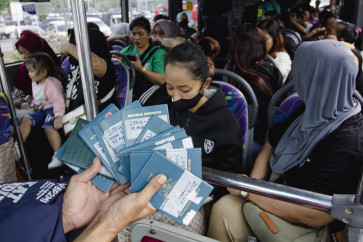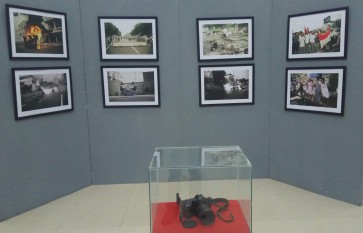Popular Reads
Top Results
Can't find what you're looking for?
View all search resultsPopular Reads
Top Results
Can't find what you're looking for?
View all search resultsIndonesia reopens travel corridors amid fears of new virus variants
The foreign entry ban, with its new exemptions, will be reviewed regularly and enforced until further notice, officials have said.
Change text size
Gift Premium Articles
to Anyone

A
fter having extended travel restrictions three times since they were introduced at the end of last year, Indonesia has reopened its existing international travel corridors, even though infection rates remain high in the country.
Throughout 2020, Indonesia worked to establish travel corridors for essential business, also known as reciprocal green lanes, with the United Arab Emirates, South Korea, China and Singapore.
An ASEAN Travel Corridor Arrangement Framework has also been agreed upon, but ASEAN member states are still negotiating its implementation.
Essential business travel corridors typically allow only essential industry stakeholders or state officials to cross borders without undergoing quarantine – provided they have sponsors in their destination country.
The government announced on Dec. 28 that it was closing its borders to foreigners who did not have stay permits amid concerns over coronavirus variants from overseas, including a highly transmissible one detected in the United Kingdom.
The nation’s borders were closed during the first two weeks of 2021, and the policy was later extended, first to Jan. 28, then to Feb. 8. On Tuesday, the national COVID-19 task force announced that several groups of foreigners, including those traveling under travel corridor arrangements, would be allowed to enter Indonesia again.
Read also: Poor COVID-19 testing throws travel corridor, labor plans up in air
"[Foreigners with] stay permits in accordance with Law and Human Rights Ministerial Regulation No. 26/2020, foreigners with travel permits according to the travel corridor arrangement schemes and foreigners with special considerations or permits in writing from ministries or agencies [are now allowed to enter the country]," said national COVID-19 task force spokesman Wiku Adisasmito in a statement on Tuesday.
Foreign nationals with diplomatic and official stay permits, limited and permanent stay permits (KITAS and KITAP) and special permits from ministerial authorities were already exempt from the border closure.
All travelers to Indonesia must present negative polymerase chain reaction (PCR) test results. The tests must be taken at most 72 hours before departure to the country and must be uploaded to the Indonesia Health Alert Card (eHAC) application. Upon arrival, travelers are to undergo another PCR test.
The foreign entry ban, with its new exemptions, will be reviewed regularly and enforced until further notice, officials have said.
Under the new measures, Indonesian citizens returning to the country and foreigners with stay permits must be quarantined for five days. Foreigners visiting under travel corridor arrangements and those holding diplomatic or service visas for official visits at the ministerial level or higher are exempt.
The government will now cover the cost of quarantine at designated hotels only for Indonesian migrant workers, students and civil servants returning from international working trips. Other Indonesians may undergo quarantine at the athletes village in Pademangan, North Jakarta, or pay for hotels out of pocket.
Wiku said Indonesian citizens and foreigners who had undergone the mandatory five-day quarantine had to take yet another PCR test and could only continue with their trips if the results were negative. The government has also recommended that travelers self-isolate for 14 days after this test.
"It should be emphasized that the mechanism for entering Indonesian territory for those who are excluded does not eliminate other obligations to implement other health protocols," Wiku said.
Read also: Government opts for more targeted restrictions, while relaxing others, ahead of Chinese New Year
The spokesman did not explain why travel corridors were being reintroduced while the national daily case rate remained high and local genomic surveillance lagged.
Dicky Budiman, an epidemiologist at Griffith University in Australia, said the government had to balance the benefits and risks of reopening travel corridors, as the possibility of new and more infectious COVID-19 strains loomed.
“We have to consider that right now there are new strains that we cannot detect because our genome surveillance is not sufficient. By opening up [travel corridors] we are risking not only opening to countries that have these new strains, but also to third countries who have active flight routes,” he said.
Indonesia has only submitted 387 complete virus genomes to GISAID, a German nonprofit database for sharing viral genomes. This is about 0.03 percent of the total COVID-19 cases reported in the country.
On Wednesday, the government reported 8,776 new cases and 191 deaths, bringing the cumulative number of confirmed cases in the country to 1,183,555 and total deaths to 32,167.
Despite the grim figures, Indonesia is still seeking to expand travel corridors to other partner countries, most recently to Malaysia, whose prime minister visited Indonesia last week.
President Joko “Jokowi” Widodo received Malaysian Prime Minister Muhyiddin Yassin on Friday, and the two agreed to begin talks on such an arrangement.
Indonesia is also discussing a similar arrangement with Japan, and is seeking to finalize the ASEAN-wide travel corridor as well.
“At least a joint commitment has been achieved at the leadership level to negotiate and agree upon these travel corridor arrangements,” Foreign Ministry spokesperson Teuku Faizasyah said.









